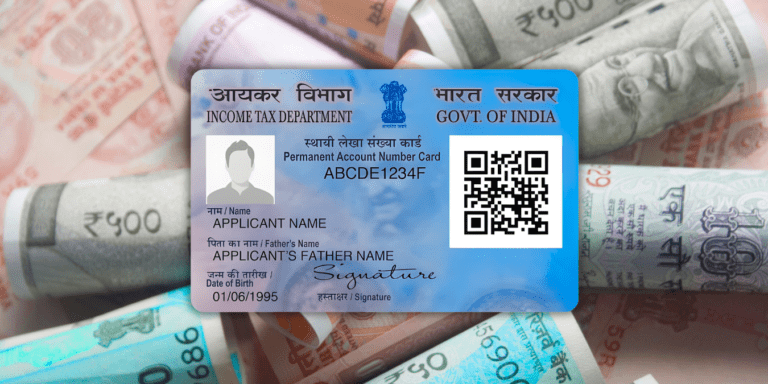
Can Senior Citizens Claim Both 80TTA and 80TTB? A Detailed 2025 Guide for Seniors Battling Inflation
Can Indian seniors claim both 80TTA and 80TTB to save on taxes in 2025? This surprising guide reveals why one critical mistake could cost you ₹50,000! With rising medical costs and new tax rules, discover how 80TTB unlocks 5x more savings for retirees. Packed with 2025 data, step-by-step tips, and shocking pitfalls to avoid, this post is your key to maximizing interest income deductions. Don’t miss the secret to shielding your fixed deposits from tax traps—read now to secure your financial future!
Senior citizens in India often seek every available tax benefit to maximize their savings, especially on fixed income sources like bank interest. A common query concerns whether senior citizens can claim deductions under both Section 80TTA and Section 80TTB of the Income Tax Act. This blog post breaks down the rules, benefits, and FAQs around these two prominent sections, using the latest 2025 tax data and offering clarity on the best way senior citizens can optimize their tax deductions.
Why This Matters for Senior Citizens
With rising living costs and medical expenses, many senior citizens depend heavily on interest income from savings accounts and fixed deposits. Understanding which tax deductions apply can significantly impact their overall tax liability. In 2025, the Income Tax Act clearly differentiates between Sections 80TTA and 80TTB, specifically targeting different taxpayer groups. This post explains why senior citizens cannot claim deductions under both sections simultaneously, highlights which option is more beneficial, and offers practical guidance on how to claim these deductions effectively.
Understanding Sections 80TTA and 80TTB: The Basics
To navigate the complexities of India’s tax system, it’s essential to grasp the fundamentals of these sections. Introduced to encourage savings and provide relief, they cater to different demographics. Let’s dive deeper into each, including their historical context, eligibility criteria, and how they fit into the broader Income Tax Act framework.
What is Section 80TTA?
Section 80TTA was introduced in the Finance Act 2012 to promote savings among younger taxpayers. It offers a deduction up to ₹10,000 on interest income from savings bank accounts. This limit has remained unchanged since its inception, reflecting the government’s focus on modest relief for basic savings.
- Eligibility: It applies to individuals below 60 years and Hindu Undivided Families (HUFs) only. Senior citizens are explicitly excluded, as they have access to more generous provisions.
- Coverage: Interest from fixed deposits (FDs) or recurring deposits (RDs) is not covered. Only savings account interest from banks, cooperative banks, and post offices qualifies.
- Benefits: The deduction reduces taxable income, helping taxpayers save on tax for interest earned from savings accounts. For example, if a 50-year-old earns ₹15,000 in savings interest, they can deduct ₹10,000, taxing only ₹5,000.
- Limitations: In 2025, with average savings account interest rates around 3-4%, this deduction covers roughly ₹2.5-3.3 lakh in savings balances—modest for most middle-class families.
From an Indian perspective, this section supports young professionals in urban areas like Delhi or Bangalore, where digital banking is prevalent. However, for retirees, it’s irrelevant, pushing them toward 80TTB.
What is Section 80TTB?
Section 80TTB, introduced in the Finance Act 2018, addresses the unique needs of India’s aging population. It allows a deduction up to ₹50,000 per year on the total interest income earned from savings accounts, fixed deposits, and recurring deposits. This was a response to feedback that seniors needed broader coverage, given their reliance on fixed-income investments.
- Eligibility: Specifically for resident senior citizens aged 60 years or above. Non-residents and those under 60 are ineligible.
- Coverage: Unlike 80TTA, it includes interest from FDs, RDs, and savings accounts in banks, post offices, and cooperative societies. This comprehensive scope acknowledges that seniors often park funds in FDs for stability.
- Historical Context: Launched amid concerns over elder financial security, it replaced the earlier senior-specific exemption under Section 80TTA for them. In 2025, with no changes from Budget 2025, it remains a cornerstone for tax planning.
- Additional Insights: Super senior citizens (80+ years) enjoy even higher basic exemption limits (₹5 lakh vs. ₹3 lakh for seniors 60-79), amplifying the benefits when combined with 80TTB.
In India, where family support systems are shifting from joint to nuclear, this section empowers seniors to manage finances independently. With FD rates for seniors reaching up to 8.25% in 2025, a ₹10 lakh FD could generate ₹82,500 in interest—making the ₹50,000 deduction highly valuable.
Quick Comparison: Section 80TTA vs 80TTB
| Feature | Section 80TTA | Section 80TTB |
| Eligibility | Individuals and HUF under 60 years | Resident senior citizens (60 years and above) |
| Deduction Limit | ₹10,000 | ₹50,000 |
| Types of Interest Covered | Savings account interest only | Savings, Fixed, and Recurring deposit interest |
| Applicable Depositories | Banks, Post offices, Cooperative banks | Banks, Post offices, Cooperative banks |
| Can be Claimed Concurrently | No | No |
| Benefit Scope | Smaller benefit, limited coverage | Larger benefit, comprehensive coverage |
Can Senior Citizens Claim Both 80TTA and 80TTB?
The key answer is No, senior citizens cannot claim deductions under both Section 80TTA and Section 80TTB for the same financial year.
- Reason for Exclusion: Section 80TTA is not applicable to senior citizens, as per the Income Tax Act. The law is designed to avoid overlap, ensuring targeted relief.
- Choice for Seniors: Senior citizens must choose Section 80TTB, as it offers a more substantial deduction limit and broader coverage of deposit types.
- Consequences of Dual Claim: Attempting to claim both sections simultaneously would violate tax rules and likely lead to scrutiny, penalties, or rejection of the tax return by the Income Tax Department.
- Legal Basis: As per official FAQs, the deductions are mutually exclusive, and opting for the new tax regime under Section 115BAC forfeits both.
This rule stems from the government's intent to streamline benefits. In 2025, with over 170 million seniors facing average medical expenses of ₹50,000-1 lakh annually, sticking to 80TTB maximizes savings without legal risks.
Why Section 80TTB is More Beneficial for Senior Citizens
Section 80TTB stands out as the superior choice for seniors, offering five times the deduction and wider applicability. Let's explore why, with real-world examples and data.
- Deduction Limit: Section 80TTB allows a deduction up to ₹50,000, five times higher than the ₹10,000 limit under 80TTA. For a senior earning ₹60,000 in interest, this means taxing only ₹10,000 vs. ₹50,000 under 80TTA.
- Types of Interest Covered: Unlike 80TTA's restriction to savings account interest only, 80TTB includes FD and RD interest. In 2025, with senior FD rates at 7-8.8%, this covers the bulk of retiree income.
- Designed for Senior Citizens: Acknowledging that many senior citizens depend on fixed deposits and recurring deposits for steady income, the government designed this section to ease their tax burden. Studies show average interest income for seniors is around ₹40,000-60,000 annually, perfectly aligned with the limit.
- Aggregate Interest Income Deduction: The deduction is calculated on the total interest income from all eligible deposits, making it easier for senior citizens who hold multiple accounts across banks like SBI or HDFC.
- Additional Perks: Combined with higher exemption limits (₹3 lakh for seniors), it can make income up to ₹3.5 lakh tax-free. For super seniors, this rises to ₹5.5 lakh.
From an Indian lens, amid changing demographics—where the elderly population is expected to double to 320 million by 2050—80TTB promotes dignity and independence, reducing reliance on children in a culture valuing family ties.
How to Claim These Deductions: Step-by-Step Guide
Claiming deductions requires meticulous record-keeping. Here's an expanded guide with tips for 2025 ITR filing.
For Senior Citizens Claiming Section 80TTB
- Identify Total Interest Income: Collect all interest certificates or bank statements for interest earned during the financial year from savings, fixed, and recurring deposits. Use apps like Digilocker for digital access.
- Calculate Eligible Deduction: The deduction is the lesser of total interest earned from eligible deposits or ₹50,000. Example: If interest is ₹70,000, deduct ₹50,000; if ₹40,000, deduct the full amount.
- Include Interest Income in ITR: Report the interest income under “Income from Other Sources” in ITR-1 or ITR-2. Seniors over 75 with only pension and interest may skip filing if TDS is deducted.
- Claim Deduction in ITR: During filing on the e-filing portal, enter the amount under Section 80TTB in the deductions section.
- Retain Documents: Keep bank statements, Form 16A, and interest certificates for at least 6 years, in case of assessment.
- Advanced Tip: Use tax software like ClearTax or TaxBuddy for auto-calculation, especially if you have multiple accounts.
For Individuals Below 60 Years Claiming Section 80TTA
- Collect Interest Details: Obtain interest income certificates for savings accounts from banks or post offices.
- Deduction Limit: Deduction is up to ₹10,000 only on savings account interest. Calculate based on Form 26AS.
- Declare Interest and Claim Deduction: Report in ITR under “Income from Other Sources” and claim deduction under Section 80TTA.
- Document Retention: Maintain proof to support claims, including passbooks.
- Tip for Young Taxpayers: Combine with other deductions like 80C for holistic savings.
In 2025, with digital ITR filing mandatory for most, seniors can use voice-assisted apps or seek help from CA portals.
Featured Snippet: Key Takeaways for Senior Citizens
- Senior citizens cannot claim both 80TTA and 80TTB simultaneously.
- Section 80TTB offers a higher deduction limit of ₹50,000 covering more deposit types.
- Section 80TTA is only available to individuals below 60 years and offers a ₹10,000 limit on savings account interest.
- Always report all interest income in your tax return, even if it is covered by deductions.
- Choose Section 80TTB exclusively if you are a senior citizen, to maximize tax savings on interest income.
Common Mistakes to Avoid
Avoiding pitfalls ensures smooth tax compliance. Here are expanded warnings with examples.
- Claiming Both Sections: As clarified, claiming both 80TTA and 80TTB in the same year is not allowed for senior citizens. Example: A 62-year-old claiming both might face a notice under Section 143(1).
- Including Ineligible Interest Income: Interest from corporate bonds, debentures, or non-banking financial instruments is not eligible under these sections. Stick to bank/post office deposits.
- Not Reporting Interest Income: Interest income must be reported even if the deduction covers it, to maintain transparency. Undeclared income can trigger penalties up to 200%.
- Incorrect Age Categorization: Ensure eligibility by age—individuals must be 60 or above for Section 80TTB. Use Aadhaar for verification.
- Ignoring Change in Tax Regime: Senior citizens opting for the new tax regime under Section 115BAC cannot claim 80TTB. In 2025, the new regime offers lower rates but no deductions—crunch numbers before choosing.
- Overlooking TDS: Banks deduct TDS on interest over ₹40,000 (₹50,000 for seniors), but deductions reduce effective tax.
Additional Insights: Tax Saving Tips for Senior Citizens in 2025
Beyond 80TTB, seniors can leverage other strategies:
- Senior Citizen Savings Scheme (SCSS): Offers 8.2% interest, deductible under 80C up to ₹1.5 lakh.
- Health Insurance under 80D: Deduct up to ₹50,000 for premiums.
- NPS Investments: Extra ₹50,000 under 80CCD(1B).
- Reverse Mortgage: Tax-free income for home-owning seniors.
- Diversify Investments: Balance FDs with debt funds for better post-tax returns.
With average FD rates at 7.5-8.5%, a diversified portfolio can yield tax-efficient income.
Practical Next Steps for Senior Citizens in 2025
- Review all your interest income sources carefully, especially fixed and recurring deposits.
- Prepare accurate interest income documentation before filing your tax return.
- Ensure you claim deduction under Section 80TTB only, avoiding dual claims with 80TTA.
- Consult a tax expert or use reliable filing software to confirm proper deduction claims.
- Plan investments keeping in mind the ₹50,000 interest deduction cap under 80TTB.
- Stay updated with any changes in tax rules affecting senior citizens via the Income Tax portal.
- Consider SCSS or PMVVY for guaranteed returns.
- Monitor health expenses for 80D claims.
Final Thought: Maximizing Tax Benefits for Senior Citizens
For senior citizens navigating the Indian tax system in 2025, clarity on deductions is essential for effective financial planning. Section 80TTB provides a powerful tool to reduce taxable income on interest earnings, far surpassing what older provisions like Section 80TTA offered. Understanding these provisions ensures senior citizens can claim the full tax benefit legally and maximize their financial well-being. Their choice is clear: opt for 80TTB and enjoy greater peace of mind knowing their interest income is shielded up to ₹50,000 from tax. As India's elderly demographic grows, such knowledge empowers a dignified retirement—consult a professional today to optimize your strategy.































